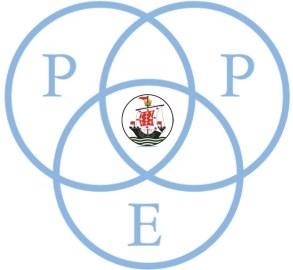
2 minute read
Geography
During Key Stage 3 students will study a range of Physical and Human Geography topics using contemporary case studies. In Year 7 students will be introduced to the subject ‘Geography’ and will study the following topics:
• Making and Mapping Connections
• The Physical and Human Geography of Asia & China
• Our Restless Planet
• Economic Activity
• Glaciation
They will also develop a variety of geographical skills which are taught throughout the topics covered in the Key Stage. These include reading different types of maps, producing and interpreting graphs, and analysing information in order to make a justified decision.
Students will be expected to bring a ruler, colouring pencils and a glue stick to all lessons.
Homework tasks will be varied and students’ progress will be assessed at the end of each topic in class.
Please encourage your son or daughter to take an interest in local, national and global environmental issues through the media.
History
History at Davenant is designed to develop pupils’ conceptual understanding of history. One of our main aims is to help pupils understand the ‘Big Picture’ of the past by developing a genuine chronological understanding.
We give particular prominence to the following:
• Understanding the development of democracy, which challenges students to consider the foundations of their rights and responsibilities.
• Giving students an understanding of the development of the British Empire, to recognise varying interpretations of this and understand the role of England, Ireland, Scotland and Wales in British history.
• Appreciate the cultural diversity and historical roots of the UK, and wider world, and the importance played by other ethnic groups and individuals in this past.
The KS3 syllabus will look to engage pupils with enquiries, such as those into:
• Conflict and cooperation in the Medieval times
• Religious change throughout the Tudor and Stuart eras
• Imperial and industrial development of Britain
• Causes and consequences of the slave trade
• Civil rights in the USA 1865 - 1960s.
• Twentieth Century conflict and cooperation
• Everyday life on the home front
The department undertakes formal half termly assessments. The main forms of assessment include:
• Extended research projects
• Controlled assessments, following individual research into an historical enquiry
• Source evaluations
• Extended written assessments
• End of year tests
Religious Education
All students follow the R.S. department’s programme of study which includes the following units:
• What Christians Believe – exploring the catechisms of the church to know what Christians hold to be true
• Philosophy – learning about philosophical technique and enquiry, and how to apply it in life
• Sikhi – understanding the Sikh religion and its traditions
• Islam – beginning to understand Muslim history and belief
• Judaism and its Festivals – Contemporary Jewish belief and practice
Assessment takes place throughout the course. Students are involved in a variety of individual and group activities including discussion, drama, projwork and research.
Over the course of Year 7 and 8, students look at Christianity in depth and study the key beliefs of the other major world faiths. They will begin their Religious Studies GCSE in Year 9.
PPE (Philosophy, Politics and Economics)
PPE has been introduced this year to help students gain a good grounding in these subjects to support their understanding and learning over the coming years. These subjects transcend all our subjects and a good basic knowledge helps students progress and deal with challenging concepts.
Each of the three disciplines will have be taught as a separate 8 lesson Unit in History, Geography and RE. Philosophy will be taught in RE, Economics in Geography and Politics in History. They will have a separate book for these units and will graduate in the summer term where they will be awarded their completion certificate.







